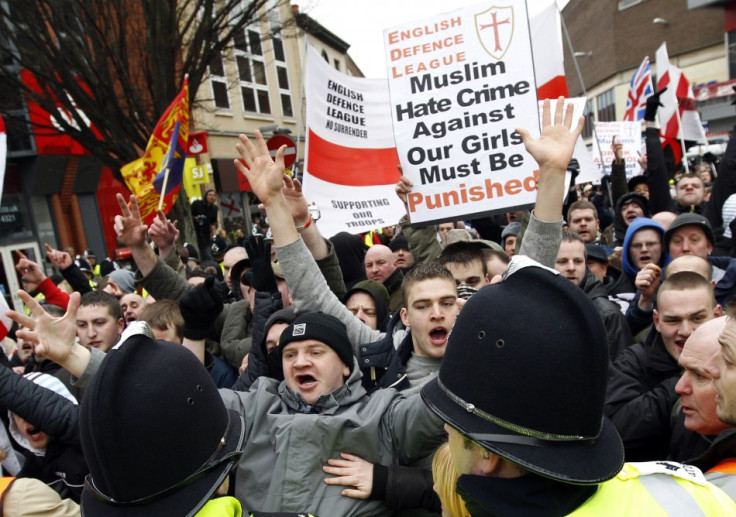Could Britain's Far-Right produce an Anders Behring Breivik?

As the number of terror offences committed in Britain has dropped dramatically since the London Tube bombings in 2005, the country faces a new peril in far-right extremism, a group of MPs says.
The home affairs select committee published its report, Roots of Violent Radicalisation, after looking into why people turn to terrorism and what can be done about it.
While the report notes that there is some disagreement about the size and even existence of the terror threat from right-wing extremism, it agreed that there is a "noticeable gap" in a prevention strategy because of the focus on Islamic extremism.
"We received persuasive evidence about the potential threat from extreme far-right terrorism," the report said.
"The ease of travel and communications between countries in Europe and the growth of far-right organisations, which appear to have good communications with like-minded groups within Europe, suggest that the current lack of firm evidence should not be a reason for neglecting this area of risk."
There should be clear guidelines in the government's strategy for prevention on how to tackle right-wing radicalisation, the report recommends.
Dr Matthew Goodwin, a political scientist at University of Nottingham who specialises in the extreme right, warned MPs that groups such as the English Defence League (EDL) pose a violent threat.
"Even though far-right parties and movements like the EDL are not overtly violent in their ambitions to the same extent that al-Qaida-inspired groups are, I would make a case that this movement contains the potential for violence," Goodwin said.
"It gives its followers a specific set of narratives that, under certain conditions, validate the use of violence."
MP Keith Vaz, chairman of the select committee, said: "Individuals from a wide variety of backgrounds are vulnerable to radicalisation.
"There is no typical profile or pathway to becoming radicalised. It is a policy of engagement - not alienation - that will successfully prevent radicalisation."
Right-wing extremism grabbed the public's attention in July, when 77 were killed in a car bomb and gun massacre attacks in Norway.
Most of the dead were teenagers attending a political event held by the Norwegian Labour Party on the island of Utøya.
Anders Behring Breivik, an anti-Muslim extremist with links to the EDL, is on trial for the murders.
In the UK over the past decade there has been a series of arrests of far-right activists who have bomb-making equipment and weapons in their homes.
Martyn Gilleard, a 31-year-old neo-Nazi from Goole, was jailed for 16 years for terror offences in 2008, after four nail-bombs, bullets, and extremists right-wing documents were found at his home.
Neil Lewington, a 44-year-old from Reading, was jailed indefinitely in 2009 after a bomb-making factory was discovered at his home, along with Nazi literature.
He was "on the cusp" of making racist bomb attacks using tennis balls stuffed with shrapnel, targeting Asian families, the Old Bailey heard.
An April 1999 nail bomb attack on the Admiral Duncan, a gay pub in London's Soho, killed three people and injured 70.
One of the dead was a pregnant woman.
There had been two other nail bombs earlier the same month. One was in Brixton, leaving 50 injured including a two-year-old who had a four inch nail driven into his brain, and the other near Brick Lane, which left 13 injured.
All attacks were aimed at gay or ethnic minority communities.
David Copeland, a neo-Nazi, was caught by police after being identified from CCTV footage.
He told them he wanted to start a race war and was given six life sentences in 2000.
Terror Offences Decline
Home Office data published in the report shows that the number of people convicted for terror offences plunged from 19 in 2009/10 to just four in 2010/11.
This is down from a peak of 51 in 2006/07.
"We suspect that violent radicalisation is declining within the Muslim community," the report said.
"There may be growing support for nonviolent extremism, fed by feelings of alienation, and while this may not lead to a specific terrorist threat or be a staging post for violent extremism, it is nevertheless a major challenge for society in general and for the police in particular."
The report recommends that the government should be "addressing perceptions of Islamophobia and demonstrating that the British state is not antithetical to Islam".
© Copyright IBTimes 2025. All rights reserved.






















